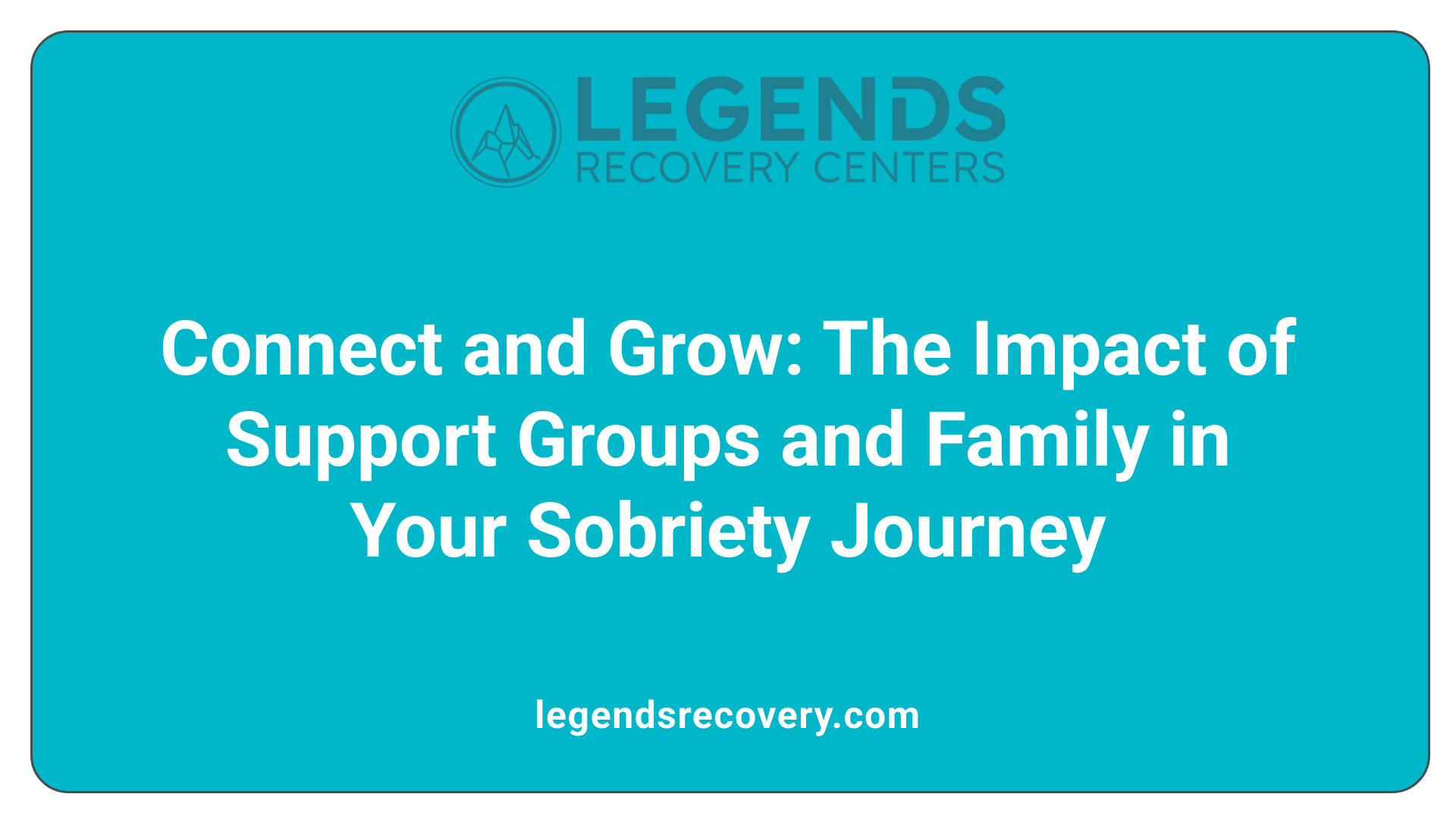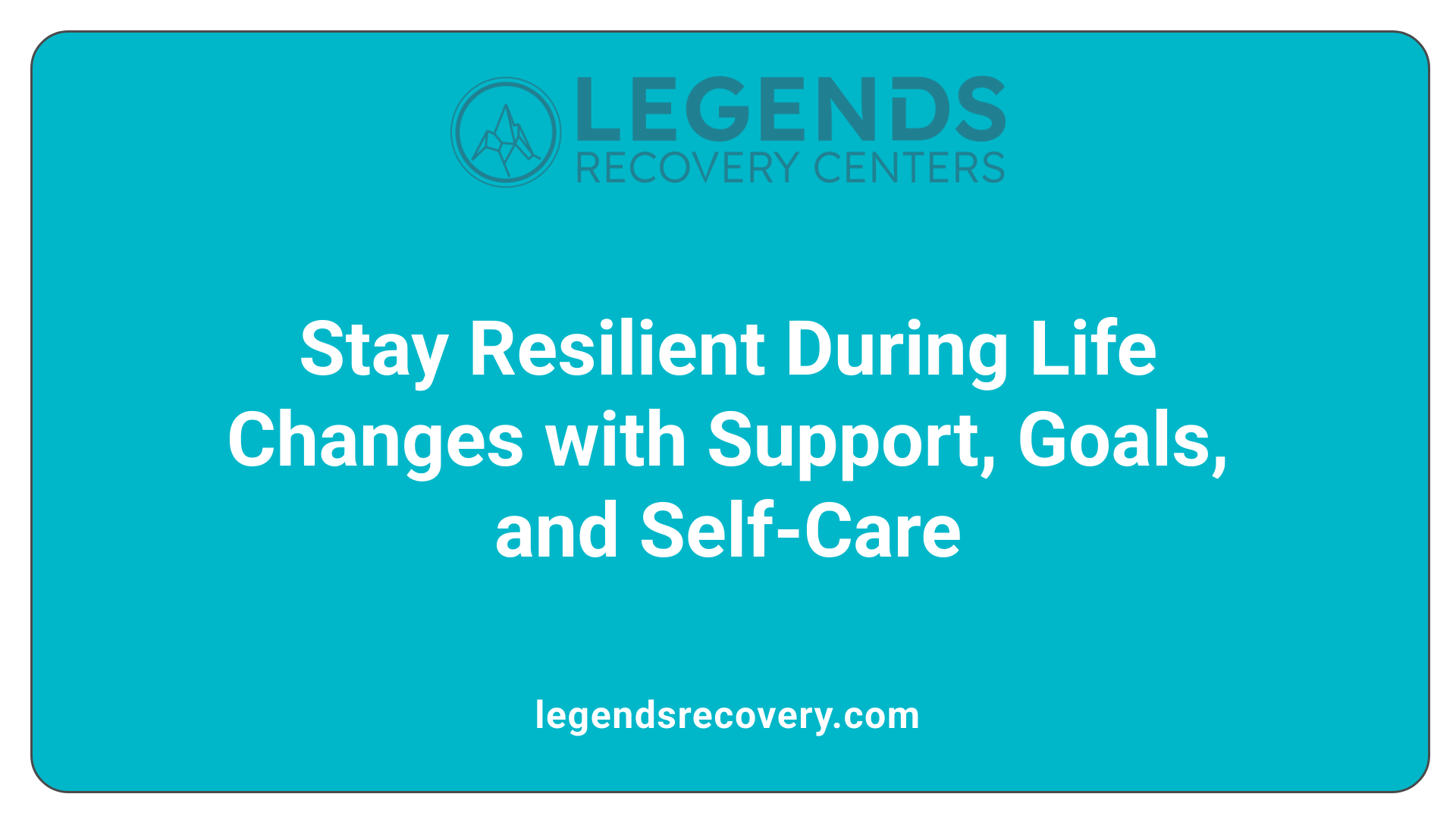Overcoming the Obstacles on the Path to Long-Term Sobriety

Maintaining sobriety in the face of life's challenges is a testament to resilience, dedication, and strategic planning. While the journey can be demanding, understanding effective techniques, building support networks, and cultivating inner strength can significantly enhance one's ability to stay committed. This article explores comprehensive approaches to help individuals navigate obstacles, sustain motivation, and ultimately achieve lasting sobriety.

Maintaining sobriety during difficult moments can be a challenge, but with personalized strategies, it becomes more manageable. A fundamental step is developing a strong commitment supported by a detailed recovery plan that includes specific coping techniques.
Setting small, achievable goals aids in maintaining focus and provides a sense of accomplishment. Accepting that setbacks may occur along the way is important; viewing them as opportunities for learning rather than failure helps sustain motivation.
Building a support network of family, friends, and support groups like Alcoholics Anonymous or SMART Recovery offers emotional encouragement and accountability. Keeping a gratitude journal can also reinforce positive thinking and remind individuals of their progress.
Evidence-based therapies, such as Acceptance and Commitment Therapy (ACT), strengthen resilience by helping individuals confront difficult emotions without overreacting and act in alignment with their core values. For those seeking professional support, centers like San Antonio Recovery Center incorporate ACT into their treatment programs.
Lastly, resources like SAMHSA’s National Helpline are invaluable for connecting individuals to local treatment facilities, support services, and ongoing assistance. Combining these approaches creates a personalized and sustainable path to long-term sobriety, even in challenging situations.

Support groups play a vital role in maintaining sobriety by providing shared experiences, encouragement, and accountability. Organizations such as Alcoholics Anonymous (AA) and Narcotics Anonymous (NA) offer a structured environment where individuals can connect with others facing similar challenges. SMART Recovery focuses on self-empowerment and cognitive-behavioral techniques, giving participants tools to manage cravings and triggers. Attending regular meetings fosters a sense of community and reduces feelings of isolation.
Creating a reliable support system is essential for ongoing recovery. This network may include friends, family members, therapists, and peer support groups. Building trust and open communication helps individuals share struggles and successes. A strong network provides emotional backing during tough times, encourages accountability, and offers practical advice. Establishing this foundation early can significantly improve resilience against relapse.
Family involvement can greatly influence long-term sobriety. Active parental or partner support offers emotional security and helps reinforce healthy behaviors. Families can also participate in counseling or family therapy to address dynamics that may hinder recovery. Encouraging loved ones to educate themselves about addiction fosters understanding and compassion, creating a supportive environment where sobriety can thrive.
The three P's are patience, persistence, and perseverance. These qualities are vital to overcoming setbacks and maintaining progress. Recovery is often a long process, and embracing these virtues ensures individuals stay committed despite challenges.
Support networks and community resources for sobriety form the backbone of sustained recovery. They provide the encouragement, guidance, and accountability needed to navigate the ongoing journey of sobriety.

The four D's of sobriety are delay, distraction, deep breaths, and de-catastrophize. These strategies help individuals manage urges and cravings effectively. For instance, delaying the urge allows time for the craving to pass, while distraction shifts focus to other activities. Deep breathing calms the mind and body, reducing stress and preventing impulsive reactions. De-catastrophizing involves reframing negative thoughts, helping individuals see situations more realistically and reduce anxiety.
Managing stress and cravings is crucial for long-term sobriety. Techniques such as urge surfing involve observing cravings like wave patterns, acknowledging them without acting on them. Practicing mindfulness and meditation, like deep breathing exercises and guided meditation, helps bring awareness to thoughts and emotions, reducing their intensity.
Engaging in hobbies, exercise, and relaxation activities supports emotional resilience. Physical activities like walking or yoga not only divert attention from cravings but also release endorphins that improve mood. Incorporating healthy lifestyle habits—such as balanced nutrition, adequate sleep, and regular routines—also strengthen the ability to withstand triggers.
Building a toolbox of coping strategies and practicing them consistently empowers individuals to handle stress without relapsing, fostering a healthier, more balanced life.
| Strategy | Description | Additional Tips |
|---|---|---|
| Urge Surfing | Observe cravings without acting | Focus on the wave-like pattern of cravings to pass naturally |
| Mindfulness & Meditation | Cultivate present-moment awareness | Use apps or guided exercises to practice daily |
| Physical Activity | Engage in exercise or hobbies | Choose activities that you enjoy and can do regularly |
| Relaxation Techniques | Include yoga, deep breathing, or massages | Practice regularly to enhance emotional stability |
| Healthy Lifestyle | Maintain good nutrition, sleep, and routine | Establish consistent daily habits to create stability |
By integrating these methods into everyday life, individuals can effectively manage triggers and cravings, supporting sustained recovery.

Life changes such as moving to a new city, changing jobs, or ending relationships can cause significant emotional stress. These transitions often evoke feelings of anxiety, sadness, or stress, which may increase the risk of relapse for individuals in recovery. It's important to acknowledge these emotions and develop healthy coping strategies. Techniques such as mindfulness, journaling, or relaxation exercises can help maintain emotional stability.
Building a support network during these times is essential. Reach out to friends, family, or support groups to share feelings and gain encouragement. Professional counseling can provide guidance tailored specifically to help manage emotional upheaval and prevent setbacks.
Resilience is the ability to bounce back from stressful events and setbacks. It can be strengthened through consistent self-care activities like getting adequate sleep, maintaining a nutritious diet, and engaging in regular physical activity. Practice mindfulness and relaxation techniques to improve emotional regulation.
Support systems, including therapy and peer groups, are foundational in resilience building. Sharing experiences and learning from others can foster hope and motivation. Recognizing personal strengths and reflecting on past successes also enhances resilience.
When facing life transitions, setting small, attainable goals can foster a sense of achievement and control. Break down larger objectives into manageable steps—such as establishing a new daily routine or connecting with a new support group.
Flexibility is crucial; setbacks may occur, and it's essential to adapt plans without feeling discouraged. Celebrating small victories reinforces positive behaviors and encourages ongoing commitment.
The initial day after quitting alcohol is often regarded as the most challenging. This day marks the beginning of withdrawal symptoms, craving intensity, and emotional turbulence. Physical signs like shaking, sweating, nausea, and cognitive difficulties can overwhelm individuals. Having a solid support system and coping strategies are vital during this period. Understanding that this difficulty is temporary and focusing on long-term goals can help individuals persevere through this tough start. With continued effort and support, the first day becomes a foundation for a healthier, sober life.
Celebrating significant achievements, like reaching one month or one year of sobriety, reinforces positive behavior. These milestones serve as tangible proof of progress and provide a sense of accomplishment.
Focusing on smaller goals, such as managing stress better or attending support group meetings regularly, helps sustain motivation. Celebrating these small wins keeps individuals engaged and committed.
Practicing gratitude through journaling enhances a positive outlook, reminding oneself of the benefits of sobriety. Sharing successes with loved ones and rewarding oneself with activities like nature trips or relaxing spa days fosters a resilient, optimistic mindset.
Support systems play a vital role in maintaining sobriety over time. Regular participation in support groups such as Alcoholics Anonymous (AA), Narcotics Anonymous (NA), or SMART Recovery offers a community of peers who understand the challenges of recovery. These groups provide encouragement, accountability, and practical coping strategies that help individuals stay committed to their goals.
Engaging with mental health professionals through ongoing therapy or counseling also bolsters recovery. Therapies such as Acceptance and Commitment Therapy (ACT) or mindfulness-based approaches assist individuals in managing emotions, confronting triggers, and developing resilience. Moreover, continual support helps in recognizing early signs of relapse, which allows for timely intervention.
Medications prescribed for underlying issues like depression or anxiety, combined with regular check-ins, support medication adherence and emotional stability. This comprehensive care structure creates a safety net that not only addresses physical addiction but also nurtures emotional and psychological well-being, making long-term sobriety more achievable.
Identifying the initial indicators of relapse — such as emotional distress, craving intensification, or avoidance behaviors — is key to preventing full setbacks. Early detection enables prompt action, whether through reaching out to a sponsor, attending an extra support group session, or consulting a healthcare professional.
Being aware of potential triggers and having a relapse prevention plan in place can significantly reduce the risk of returning to substance use. It includes strategies like stress management techniques, avoiding high-risk situations, and employing healthy coping mechanisms.
Establishing a routine, maintaining healthy lifestyle habits, and continuously working on personal growth foster resilience. Activities like journaling, practicing mindfulness, engaging in hobbies, and building strong relationships bolster emotional health.
A structured approach that combines therapy, support group participation, medication management if needed, and lifestyle adjustments creates a comprehensive approach. Such ongoing support addresses the multifaceted nature of addiction, emphasizing that recovery is a lifelong journey.
| Support Type | Role in Recovery | Additional Details |
|---|---|---|
| Support Groups | Community and accountability | Peer sharing, mutual encouragement |
| Therapy / Counseling | Emotional resilience and coping | Techniques like ACT, mindfulness, cognitive-behavioral therapy |
| Medications | Manage co-occurring mental health issues | Adherence improves stability |
| Lifestyle Changes | Physical and mental health | Exercise, nutrition, sleep, hobbies |
Continuing support and vigilance are essential to sustain sobriety, reinforcing the understanding that relapse prevention is a dynamic, ongoing process.
Staying committed to sobriety amidst life's inevitable challenges demands a combination of strategic planning, unwavering support, and resilience. By establishing personalized routines, leveraging community resources, practicing healthy coping mechanisms, and celebrating progress, individuals can fortify their resolve and navigate setbacks effectively. Recognizing that recovery is a lifelong journey—and seeking help when needed—can transform obstacles into opportunities for growth. Ultimately, embracing a growth mindset and nurturing self-compassion will empower anyone committed to living a sober, fulfilling life.